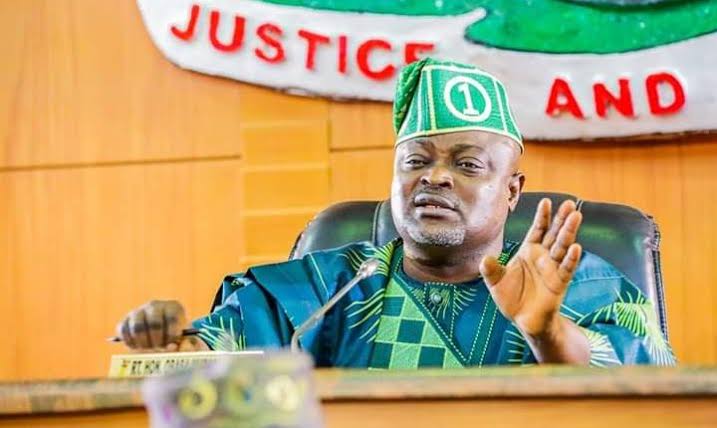The Speaker, Lagos State House of Assembly, Mr Mudashiru Obasa, says the assembly reserves the right to expose screening reports of the committee on the 17 rejected commissioner-nominees.
Obasa disclosed this at plenary on Monday, warning those planning protests and sponsoring media articles to desist, saying the house would not be threatened over the issue.
The News Agency of Nigeria (NAN) recalls that the assembly on Wednesday at plenary, rejected 17 commissioner nominees, including former commissioner for health, Prof. Akin Abayomi and former commissioner for information, Mr Gbenga Omotosho.
The lawmakers did not give reasons for the rejection.
NAN recalls that the lawmakers, however, confirmed 22 other commissioner nominees of the governor.
The exercise, which was done through a voice vote, was sequel to the screening of the nominees at the assembly’s Committee of the Whole at plenary.
Obasa, who presided over it, said the exercise followed a rigorous and detailed screening of the nominees by an ad-hoc committee led by the Chief Whip, Mr Fatai Mojeed.
Reacting on Monday, Obasa said it was unfortunate that whenever the house refused to be a ‘rubber stamp’ to a governor’s request, then it would be interpreted by the public that the lawmakers were fighting the governor.
“If anybody wishes to know the reasons for the decision, they should approach the house.
“However, we will not be forced to spill our observations, and we reserve the rights to expose the report of the screening.
“We are not going to be threatened by the civil society organisations who wish to protest.
“It is their right. He who lives in a glasshouse do not throw stones,” he said. READ ALSO:
- No Witch Hunting In Our Mining Reforms – Osun Governor
- CBN sets N100,000 as daily withdrawal limit on PoS terminals per customer
- 2025 Budget: Defence, Infrastructure, Health, Education To Gulp N14.97trn
- Ibadan Stampede: Organisers of Children Funfair Arrested – Makinde
- Ibadan Carnival Stampede: Many children feared dead
The speaker said the assembly would continue to work together with the executive because there was no reason to fight.
He, however, noted that the assembly had the constitutional rights to say ‘yes’ or ‘no’ to the nominees of the governor. (NAN)


